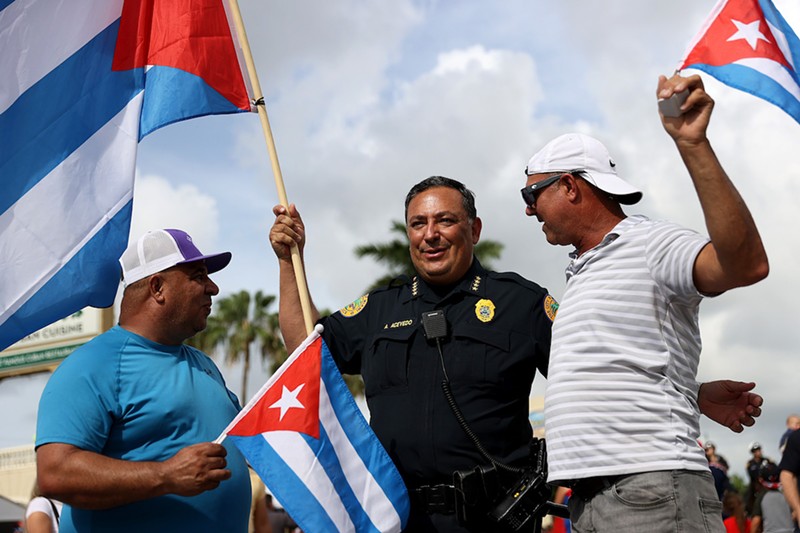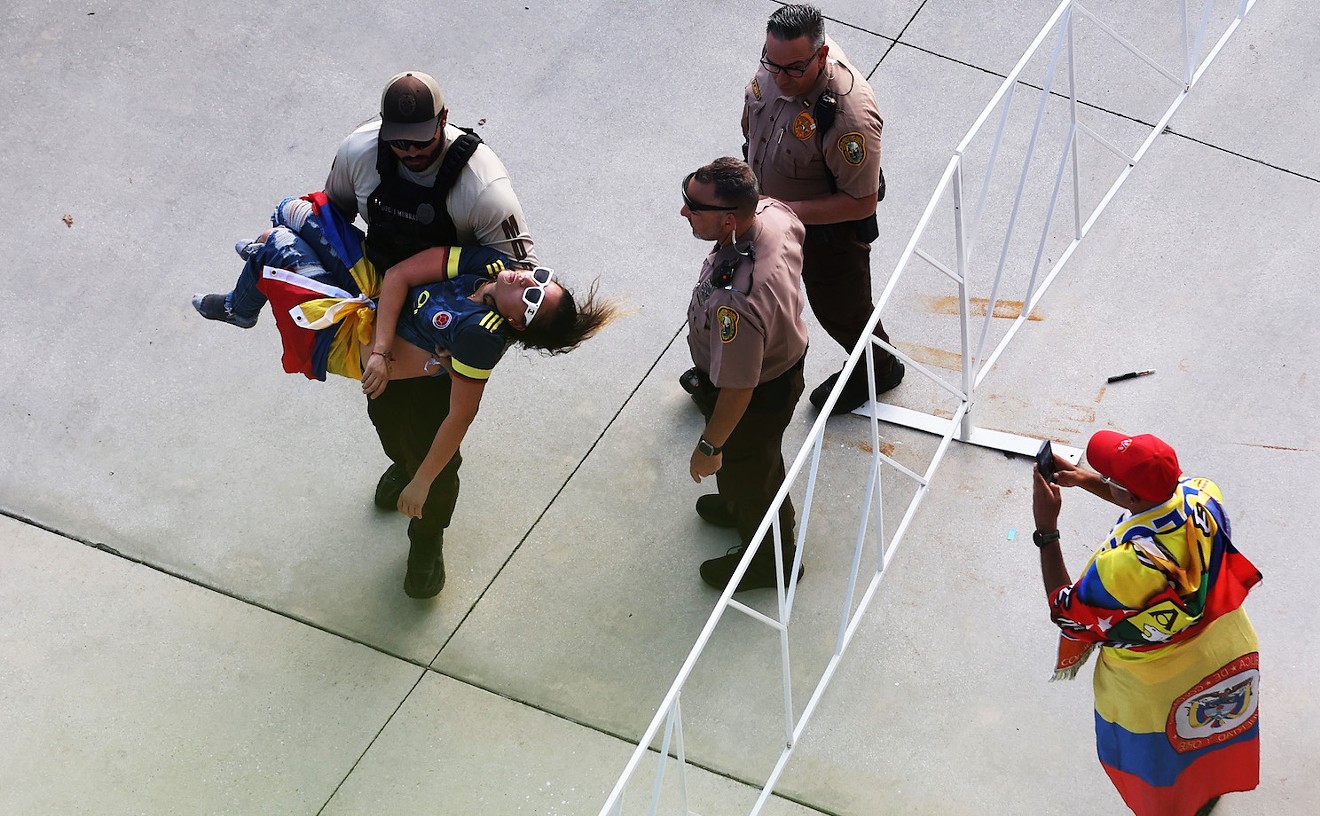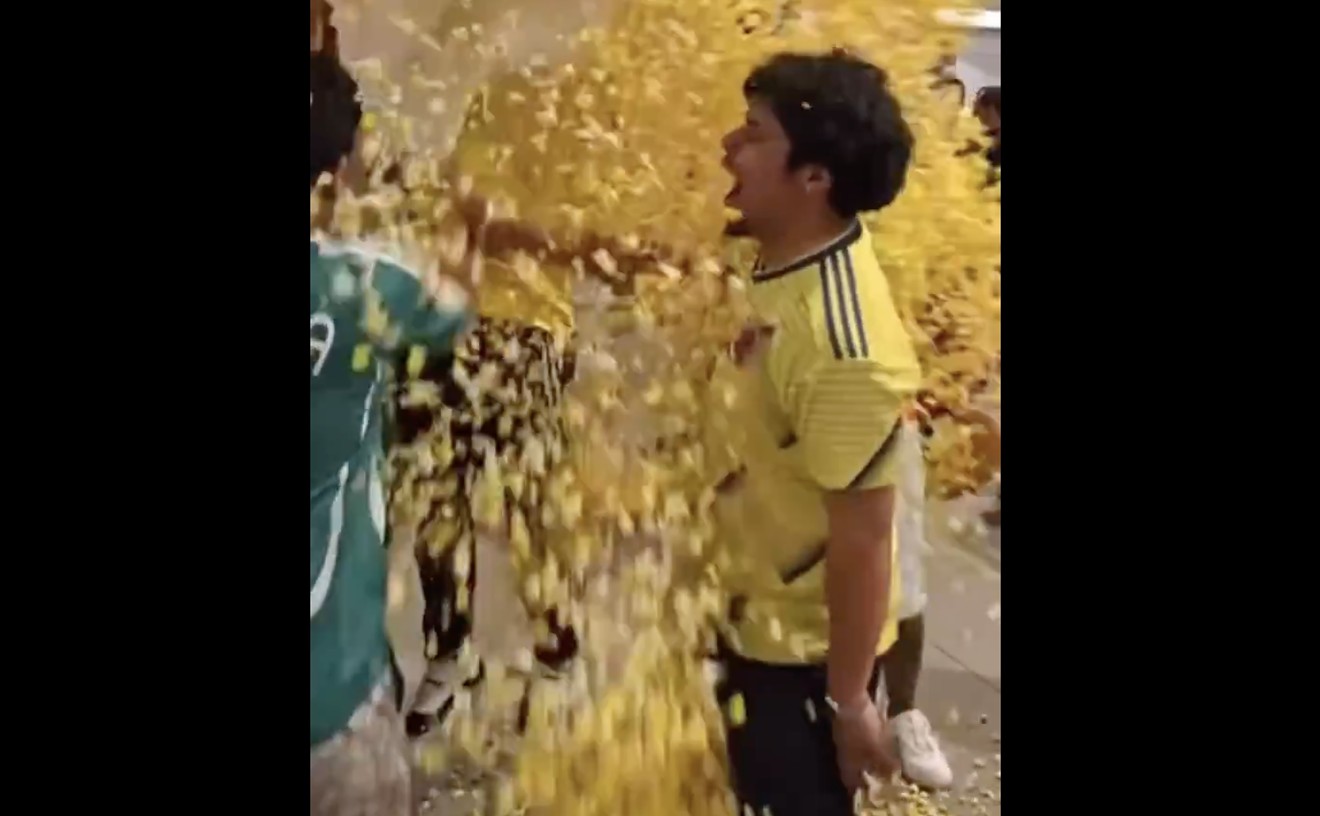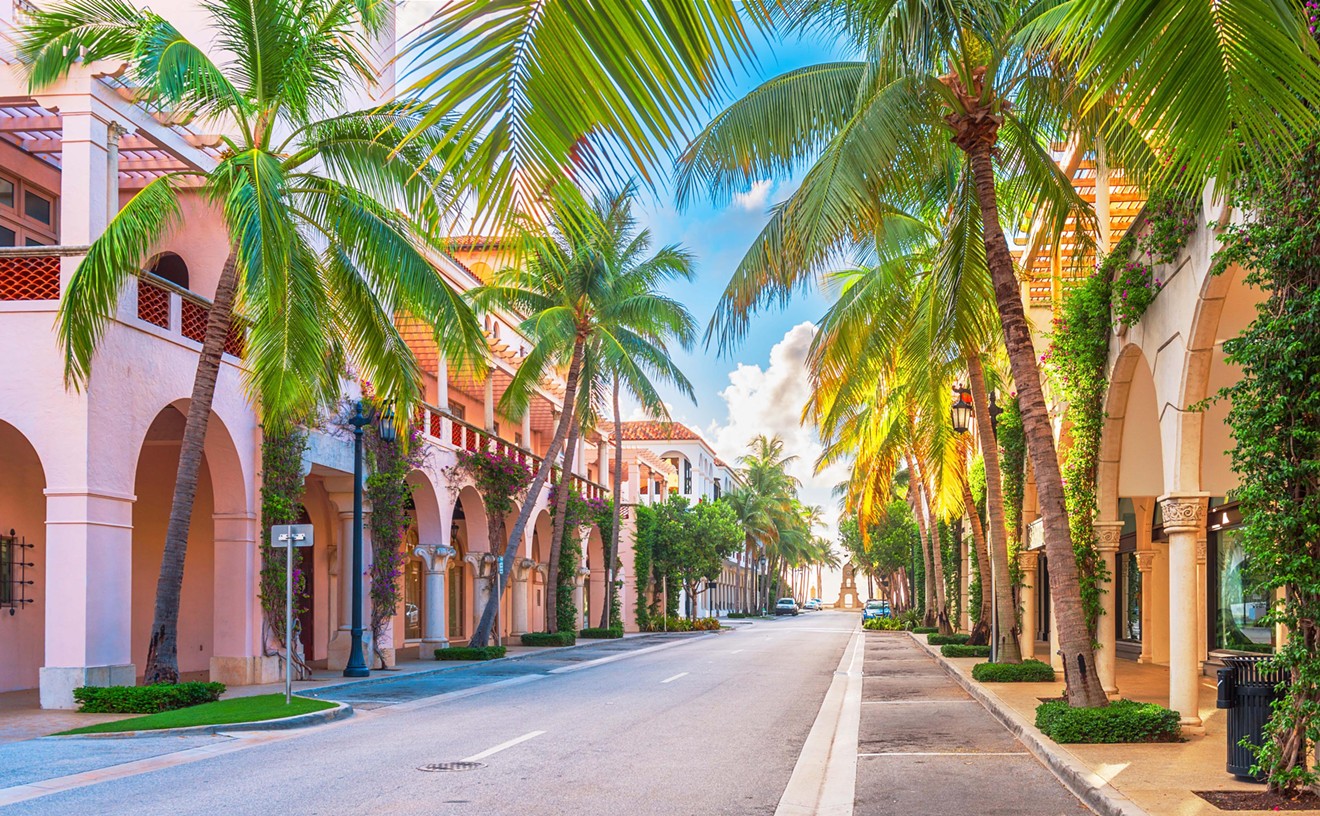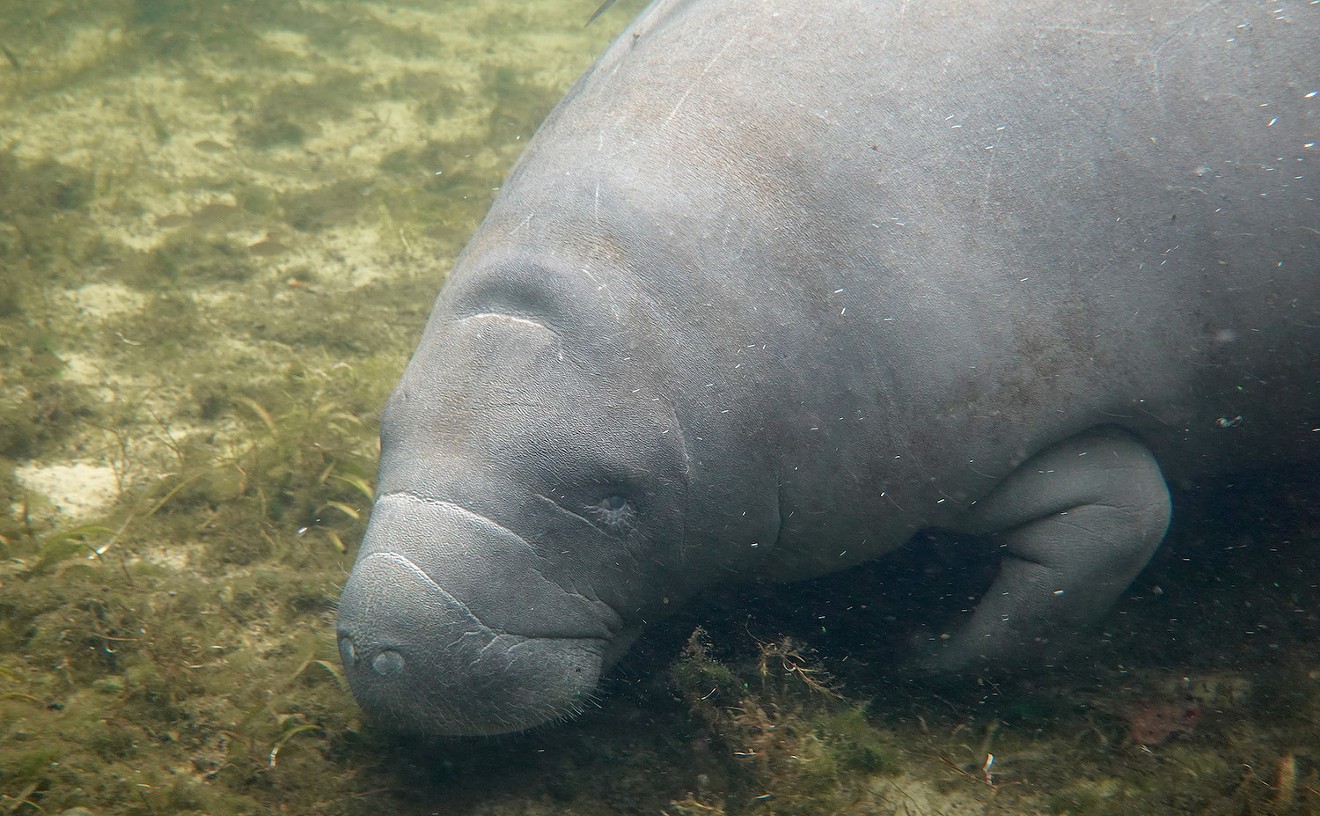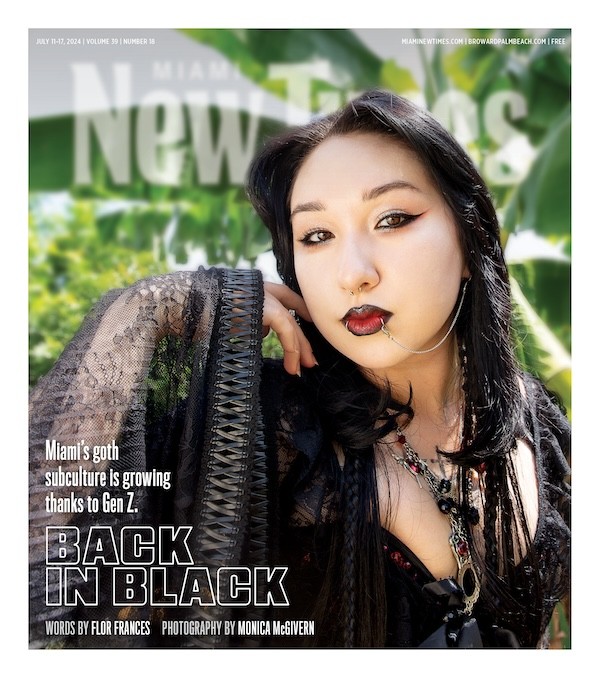These important questions were raised at Miami City Hall during the Miami City Commission's second special meeting convened to chastise Miami Police Department (MPD) chief Art Acevedo after Acevedo joked in August that his department was run by the "Cuban Mafia."
Acevedo was born in Havana but at the age of 4 moved to California — which is to say, not to South Florida. That distinction, though not explicitly stated, is at the core of not just these special meetings called by the five-member commission's three Cuban-American commissioners — Joe Carollo, Alex Diaz de la Portilla, and Manolo Reyes, often referred to as the Three Amigos — but the fragile ethnic politics that have dominated local government for the past 60 years.
Carollo, who arrived in Miami on a flight from Cuba in 1961, took issue with Acevedo's participation in the Patria y Vida solidarity protests over the summer. At today's meeting he opined that the Cuban-born police chief "got up on stage and wanted to pretend that he was a real Cuban."
When he was alive, Cuban dictator Fidel Castro used several terms to describe Cuban exiles who fled to South Florida as a way to alienate them from their heritage, including "Miami Mafia," "gusanos" (worms), and "escoria" (scum). That explains why Cuban-American officers in the police department were offended by Acevedo's joke.
Acevedo apologized on Twitter for the quip, explaining that it was uttered in the context of highlighting diversity within the MPD and admitting it exposed a blind spot to the specific sensitivities of Miami's exile community.
"While the statement was made to be humorous," Acevedo tweeted, "I have since learned that it is highly offensive to the exile Cuban community, of which I am a proud member. I want to thank City of Miami Commissioners for kindly informing me this morning that historically, the Castro regime referred to the exile community in Miami as 'the Cuban Mafia.'"
That wasn't enough for Carollo, who previously called Acevedo's words "unbelievable," and that he “must be the only individual with a Cuban background in the world that didn’t know the Cuban dictatorship called us the Cuban Mafia."Message from Chief Art Acevedo. pic.twitter.com/6mSzURqFX1
— Miami PD (@MiamiPD) September 9, 2021
At Friday's meeting, Carollo denied accusations of corruption and political meddling Acevedo had raised in an eight-page memo last week that he shared with the FBI and the Department of Justice — specifically that the police chief's allegations that Carollo had ordered him to arrest counter-protesters at a Cuban solidarity Patria y Vida event in July, and that Carollo had called them "communists."
In the memo, Acevedo said Carollo asked him to "arrest and remove his enemies, and those who were exercising their First Amendment rights.”
Carollo's comments from the dais Friday seem to cast Acevedo as "the other" — a Cuban who's not truly Cuban because of where he lived when he came to the U.S. (The veteran commissioner, who has twice served as Miami mayor, also took aim at the Miami Herald for its coverage of the Acevedo brouhaha, calling the daily "a Palace of Malice" and alluded to New Times as "Little Granma" — the latter a reference to the official newspaper of the Cuban Communist Party's Central Committee.)
Alex Piquero, a criminologist and chair of the University of Miami's sociology department, who, like Acevedo, is also a Cuban-American not raised in Miami, says Carollo's comments have nothing to do with Acevedo's duties as chief and come off as an attempt to divide the Cuban community.
"This doesn't have anything to do with the job of being a police chief. He was born in Cuba, he just happened to grow up in LA," Piquero tells New Times. "It comes across as saying, 'You're kind of like us, but you're not one of us,' when at the end of the day we should all be about all of us."

